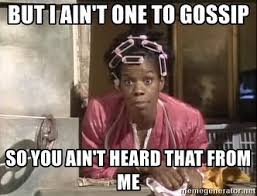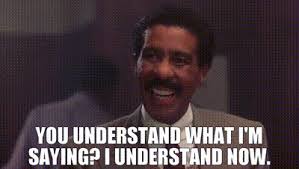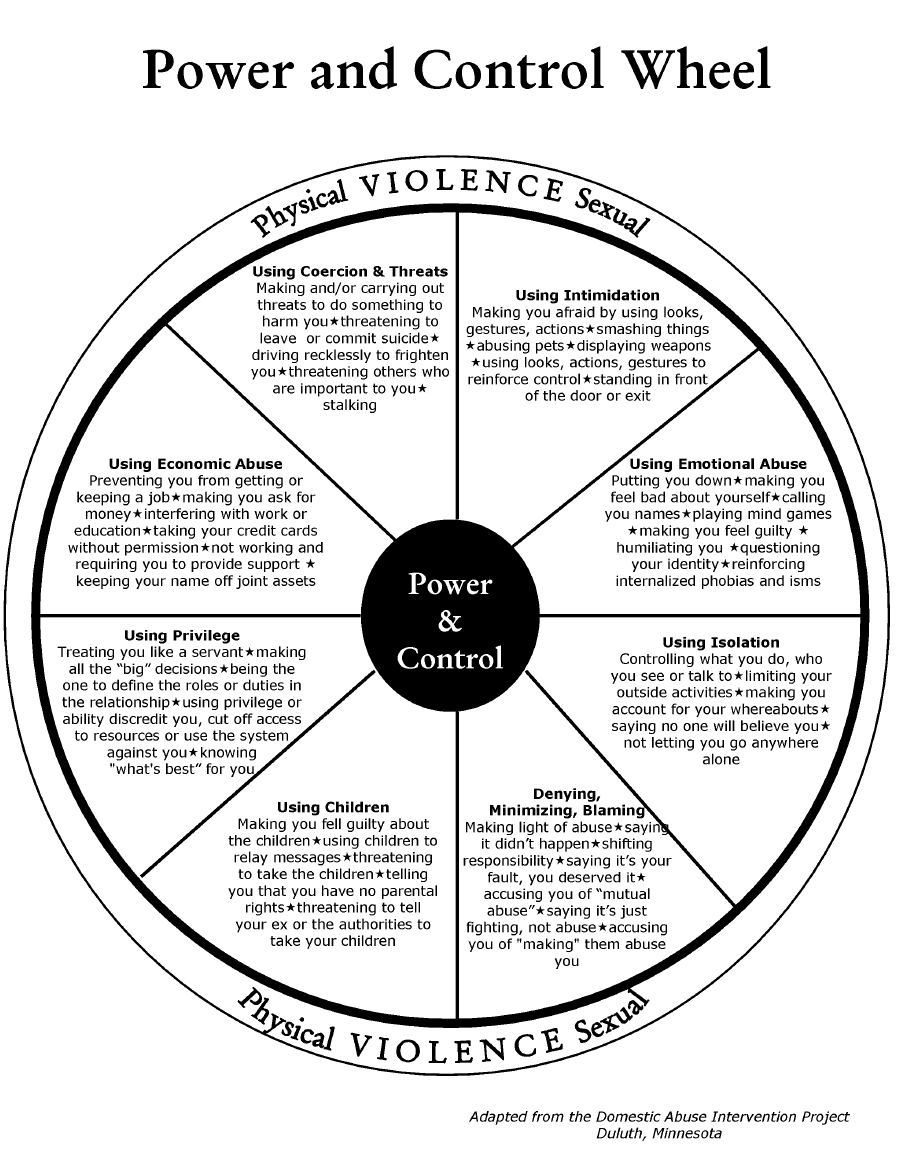Staying In A Child's Place
WARNING: So… I’m about to tell ALL my business TUHDAY. But let me make this real clear: when I tell my business, I don’t need you coming back trying to dissect it.
Here’s how this works — you hear it, you clock it like the nosy neighbor you are, and you can even go tell somebody else if you want.
Just don’t circle back to me with it. LOL.

Growing Up Feeling "Out of Place"
Growing up, I used to think something was wrong with me.
Either some aliens dropped me off and peeled back to their planet, or God straight-up forgot about me.
I honestly couldn't tell which one it was — because for the longest time, it just felt like I wasn’t supposed to be here in the first place.
I was born to highly anxious teenagers who carried a lot of responsibility for their age, but who weren’t fully ready — emotionally or otherwise — to be somebody’s parents (even with the full support of their family).
And for the record — this isn’t about blaming my parents. They truly did the best they could. And while a lot of people say that as a defense, for me, it’s just the truth.
The other half of that truth is this: I needed more than my parents or my family could give — and the God-honest truth is, none of us even knew what that “more” was.

I didn’t have the words for it back then — but looking back, I realize I was a hypersensitive kid growing up in a functionally dysfunctional environment.
I felt everything. Deeply.
Not just my own emotions, but everybody else’s too.
The tension in a room? I picked up on it before a single word was even spoken.
And because I didn’t know what to do with all of that energy and emotion, it would spill over — loud, messy, inconvenient.
Lots of tears. Lots of frustration. And fallouts.
As a result, I was often labeled "spoiled" and "ungrateful."
And while those words cut deep at the time, after buttloads of therapy — and now being a therapist myself — I understand it so much better.

When Black Girls — or Something About Them — Gets Labeled as THE Problem
In a world (and family systems with generational trauma) where survival means being quiet, staying composed, staying invisible...
my sensitivity was seen as a problem.
What I was told made me feel like the way I thought, felt, and responded was somehow defective.
I learned early:
-
Crying meant weakness.
-
Big reactions meant you were "doing too much."
-
Feeling deeply was a liability, not a gift.
My Origin Story: Becoming a High-Achieving, Over-Functioning Black Woman
So I tried to shove it all down.
Stuff it. Hide it. Bury it.
(which, honestly, was completely unsuccessful.)
I was only lying to myself.
And I fought back the only way I knew how: by leaning all the way into my intelligence.

Because there was a fire in me — a vengeance — determined to show the world that I mattered.
That I was somebody.
That my success would prove I was RIGHT (even though I was often told I was wrong).
Except... Here's the Thing
I worked hard to succeed — and even helped others succeed too.
But the truth is... I was fueled by anger.
Anger that came from constantly feeling like I was the problem.
But I wasn’t.
I WAS RIGHT.
SOMETHING WAS WRONG.
BUT THE WRONG WASN’T ME.
It took me a LONG time to see that clearly.
Me having emotions?
Me falling apart?
Me crying sometimes?
That was never the real problem.
I wasn’t the problem.
THE PROBLEM WAS THE PROBLEM.
And yes — a rose is still a rose. And it can bloom through concrete.
But let’s be real... it’s still surrounded by cement.

The cement represents the survival systems — functional family dysfunction, generational trauma, abuse in any form (click here for more information), chronic stress, and more — that Black women are forced to navigate in the external world. Systems that, over time, create barriers to emotional safety and stability within.

A Word to Black Women
As Black women, it’s time we stop beating ourselves up when we wrestle with our thoughts and feelings about what's really going on.
It’s time we stop taking responsibility for the problem — just because it feels easier to blame ourselves.
Here’s the real issue: even after we do all the work, even after we heal and grow...
The problem still exists — because it was never simply about us to begin with.
#TheProblemIsThePattern
Sharell D. Cannady, CEO of Docked Ships
PLEASE. PLEASE. SHARE THIS WITH OTHER BLACK WOMEN. AND HAVE THEM SUBSCRIBE: https://www.dockedships.com/stress-crisis-african-american-women-health
Wanna' revisit a blog/newsletter that had you like, “Wait a minute?”—No worries. Check em' out [click here].
At Dock Ships, we see "a future where African American women achieve social health & enjoy maximum wellness."

✨ Follow us on Instagram at @DockedShips as we gear up for the launch our May 2025 The Problem Isn’t You — It’s the Pattern campaign. We’re pulling back the curtain family dynamics that shape high-achieving, overfunctioning Black women — and showing you how to UNLEARN the pressure to carry it all.
This isn’t just a campaign. It’s a homecoming for your emotional truth.
Boundaries and Edges™
Boundaries and Edges™ is a newsletter/blog that discusses the social health & wellness challenges of African American women. We bring awareness to what crosses boundaries and snatches edges. Every edition is crafted with high-achieving, over-functioning African American women in mind, blending humor, hard truths, and practical tips. With relatable insights and engaging visuals. It’ll make you cackle, cry, and aim for better. Subscribe today, and let’s grow our edges back and respect our boundaries — together!



Responses